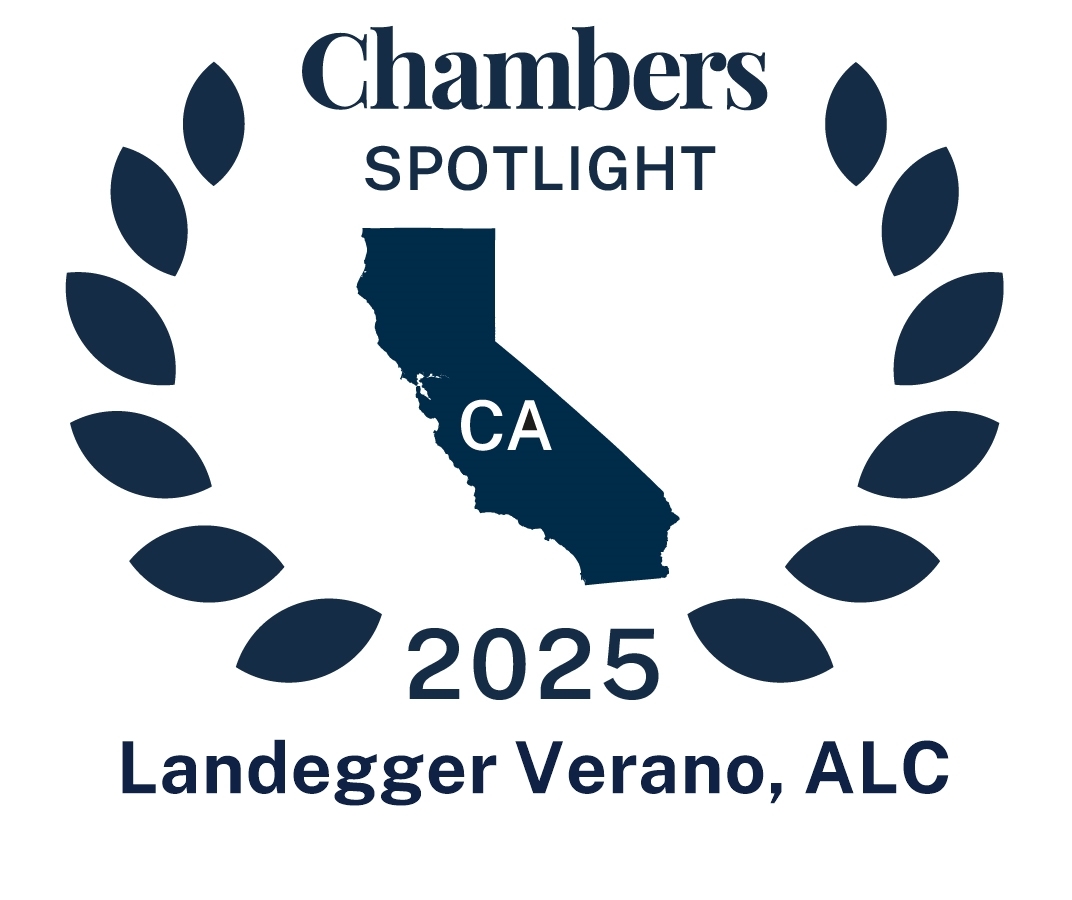
We’re excited to announce that our firm has been rated by Chambers Spotlight California 2025! Chambers and Partners has ranked us among the Top 5 Labor & Employment small law firms in Los Angeles and one of the Top 9 in California in this category. This recognition comes because of our deep expertise in wage-and-hour class action and PAGA defense, as well as our success handling complex employment law matters involving arbitration and other high-stakes disputes. While we defend employers across all areas of employment law—including harassment, discrimination, retaliation, and wrongful termination claims—it’s our focused, strategic work in wage-and-hour class […]

A Resounding Summary Judgment Win by the Landegger & Verano Team! We are proud to announce a monumental legal victory in the employment law matter LaDrea Johnson v. Dingwell Law, APC, Case No. 23STCV21084. Our team led by Kristina Kourasis, Esq., with the indispensable help of James M. Bacon, Esq. and Anna Tsaturian, Esq., secured a complete summary judgment—a decisive win rendered by Los Angeles Superior Court, Judge Holly Fujie, Dept. 56. In this case, the plaintiff leveled multiple serious allegations, including: Race Discrimination (in violation of Fair Employment & Housing Act “FEHA”) Harassment on the basis of race (FEHA) […]

Tuesday, April 8th 10:00 AM Pacific Live on Zoom Are you prepared to protect your business from costly class actions and PAGA claims? Join us for a practical, info-packed session designed to help employers stay compliant and reduce risk. Featuring employment law experts Luiza Manuelian & Evelyn Zarraga of Landegger & Verano. You’ll learn: The biggest risks California employers face Steps you can take now to protect your business Tools to stay compliant and avoid litigation Valuable insight in under an hour—completely free. Just click and join us live: Join Webinar Whether you’re in HR, operations, or leadership—this session is for you.

The Landegger Baron Law Group is pleased to announce that Kristina Kourasis, Esq. has been appointed to the Board of Directors of the Greater San Fernando Valley Chamber of Commerce. Ms. Kourasis has been very active within the Chamber membership and regularly provides much needed employment law guidance and training for the business community. “Employers in California today are facing highly complex challenges to comply with the myriad of changing and conflicting Federal, State and local laws governing all areas of the employer/employee relationship”, she said. “Even the best intentioned and most diligent employers can easily run afoul of adverse […]

Landegger Baron Law Group, an employment defense law firm located in Encino, California, is pleased to announce that Patrick E. White III has been selected to the 2019 California Rising Stars list by Super Lawyers. Each year, no more than 2.5 percent of the lawyers in the state are selected by the research team at Super Lawyers to receive this honor. As an associate attorney, Patrick has extensive experience defending and counseling employers in connection with wage and hour class action matters. The entire Landegger Baron team is excited and pleased to see this accolade bestowed upon one of their […]

2019 Legal Update for Employers Getting up-to-date with new Employment and Wage and Hour Laws Greater San Fernando Valley Chamber of Commerce presents a webinar on Thursday January 11 10:00 a.m. to 11:00 a.m. This webinar is FREE to chamber members and $20 to non-members RSVP ONLINE HERE EMPLOYMENT LAW TOPICS THAT EVERY EMPLOYER NEEDS TO KNOW New laws on sexual harassment claims or changes to disclosure requirements and settlement agreements for sexual harassment claims Expanded Lactation Accommodation Requirements FEHA Amendments Paid Family Leave Expansion Drastic Changes in Independent Contractor Classification De Minimis unpaid time and rounding timekeeping policies Our […]
We look forward to meeting with you
to discuss how we can become a part of your team and help your company succeed and prosper.
We will serve as your trusted counsel for all your employment law needs. Please contact us for more information.

